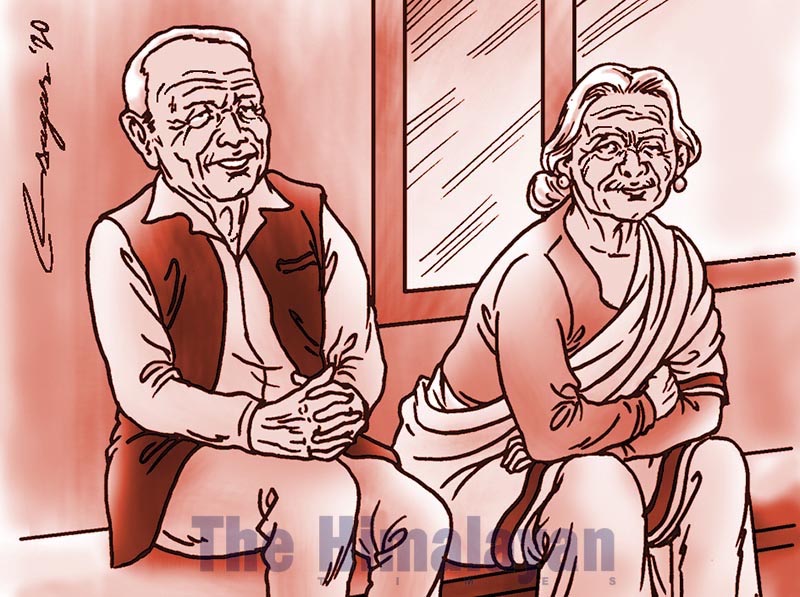Gene matters: Why we don’t have to age
Is aging a disease? David Sinclair, a professor of genetics at Harvard Medical School and researcher in aging and longevity, thinks so. He outlines that aging is a disease, but it is treatable within our lifetime
When Linus Pauling, the legendary chemist and two-time Nobel laureate, discovered that a specific heritable protein variation in a single component of haemoglobin protein complex resulted in sickle cell anaemia, it initiated a new era in biomedical sciences. Years later, the gene responsible for the haemoglobin variant was discovered — including an entire series of discrete molecular events, leading to the symptoms of the disease. Thereafter, the fast-expanding ‘behold-the-gene’ bandwagon has moved on, providing explicit elucidation of how and why particular people fall ill. Not only that. It has augmented new horizons and demystified a natural phenomenon without lax ends.
As geneticist Gary Zweiger puts it, “Biology is being reborn as information science, a progeny of the Information Age.” His raison d’être? Molecules convey information. It is their ‘epistles’ that are of fundamental importance. It may, therefore, be logically construed that each molecule interacts with a set of molecules — and each set communicates with another set, such that all are interconnected.
He adds, “Networks of molecules give rise to cells; networks of cells produce multicellular organisms; networks of people bring about cultures and societies; and networks of species encompass ecosystems. Life is a web and the web is life.”
Genomics, as Zweiger also explains, goes beyond the conventional one-to-one gene trait approach. It ‘transduces’ biological data into digital information, which may be analysed, scientifically synthesised, ‘manipulated’ and combined to reveal the exactitude of millions of life’s molecules.
This also brings to light the work of genome pioneers, like John Craig Venter and Randy Scott, not
to speak of the several genii of yore who first made it all possible. We could, in today’s context, anticipate what effect this glut of new innovations could have on us — when medicine and medical research are poised to exponentially swell. We’d, as a result, see more diagnostic tests for single-gene genetic diseases; more gene variants linked to complex genetic diseases; more clinically valuable gene products and new targets for drug development, including the greater use of gene expression microarray analyses in drug discovery research and disease diagnoses.
As one researcher puts it, “I’m not sure about the ultimate source code, but I’m certain about two irrepressible messages. One tells us to live long and healthy lives, and the other beseeches us to know and express ourselves.”
This brings home a definitive vision — by ‘transducing’ the genome, we are sure going to acquire greater responsibilities and, in the process, become the stewards of our own progress and vice versa.
This leads us to that million-dollar question: is aging a disease? David Sinclair, a professor of genetics at Harvard Medical School and researcher in aging and longevity, thinks so. In his new, bestselling book, Lifespan: Why We Age—and Why We Don’t Have To, he unravels the latest research on longevity and anti-aging therapies.
He outlines that aging is a disease, but it is treatable within our lifetime. He adds that the most significant reason for aging is a loss of information. The most imperative shortfall occurs in the epigenome — the expression of the genetic code that ‘guides’ newly divided cells what they ought to be. Sinclair uses a classy metaphor — he says that aging is like the build-up of scratches on a compact disc.
The information can no longer be read correctly. Each time there is, likewise, a far-reaching modification to the epigenome, following DNA damage, a cell’s uniqueness is altered. This is why we age.
Research has discovered ‘longevity-centric’ genes — sirtuins, rapamycin (mTOR) and AMPK — that have the ability to prolong the lifespan in various organisms. Besides, there are good old natural modes to galvanising longevity genes, viz., high intensity exercise, intermittent fasting, low-protein diets and exposure to hot and cold temperatures.
Such stressors, or hormeses, ‘turn on’ the genes that prompt us to survive a little longer. Studies are progressing on molecules that stimulate longevity genes — rapamycin, metformin, resveratrol — among others. Resveratrol, found in grapes, is evidenced to activate sirtuins and expand lifespan in mice by 20 per cent. Sinclair believes we could live to be 150 with average life expectancy increasing from 80 to 110, or higher, in the near future.
However, on the other side of the spectrum, we have got to blame ourselves for having placed gene mechanics in a Kafkaesque paradox. More importantly, not giving the irony its due has cost us dearly: a host of disease syndromes and a range of calculable, or psychological, disadvantages, including disturbances in the immune system and its functioning.
Interestingly, ground- breaking research in the field of gene medicine has currently, also fortunately, corroborated one of nature’s wisest connotations. That wholesome health holds a ‘hands-on’ prescription for longevity — a ‘signpost’ that is much more influential than diet, exercise, or heredity.
For our gene-obsessed society, this is a wake-up call for good, vibrant, also optimal living — a realisation that explores the vital connection that exists between health, happiness, wellness and a quality nap.






